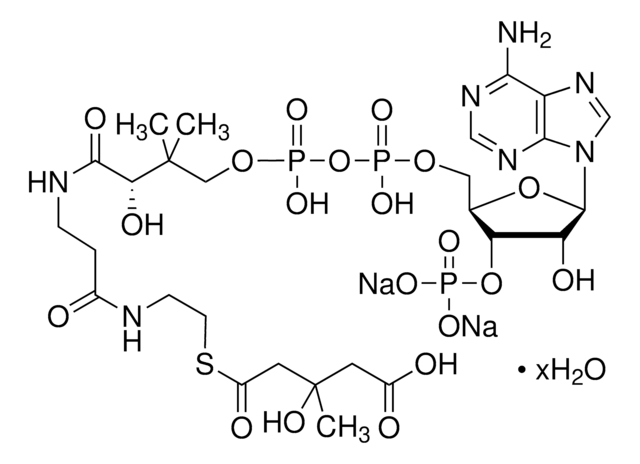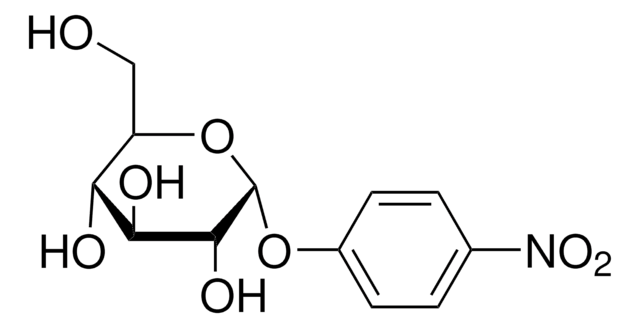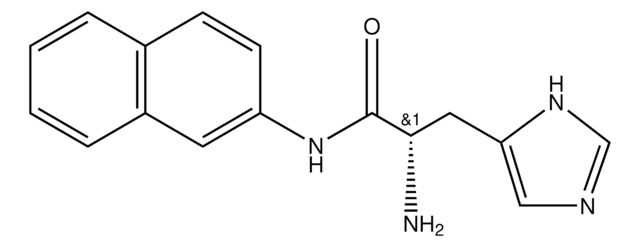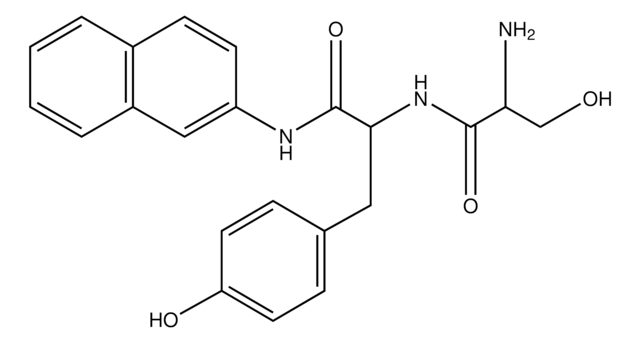H7039
3-Hydroxy-3-methylglutaryl-CoA reductase human
solution
Synonym(s):
HMGCoA Reductase, HMGR
About This Item
Recommended Products
Assay
≥90% (SDS-PAGE)
Quality Level
form
solution
specific activity
2-8 units/mg protein
mol wt
~76 kDa (for the fusion protein)
UniProt accession no.
shipped in
dry ice
storage temp.
−70°C
Gene Information
human ... HMGCR(3156)
Application
- in anti-HMGCR enzyme linked immunosorbent assay (ELISA)
- as an antigen to measure anti-HMGCR antibodies by blot analysis
- in HMG-CoA reductase activity assays
- as an antigen to compare in-house antigen via sodium dodecyl sulphate-polyacrylamide gel electrophoresis (SDS-PAGE)/western blot
Biochem/physiol Actions
Physical properties
Unit Definition
Physical form
inhibitor
substrate
Storage Class Code
10 - Combustible liquids
WGK
WGK 1
Flash Point(F)
Not applicable
Flash Point(C)
Not applicable
Certificates of Analysis (COA)
Search for Certificates of Analysis (COA) by entering the products Lot/Batch Number. Lot and Batch Numbers can be found on a product’s label following the words ‘Lot’ or ‘Batch’.
Already Own This Product?
Find documentation for the products that you have recently purchased in the Document Library.
Customers Also Viewed
Articles
Biosynthesis of cholesterol generally takes place in the endoplasmic reticulum of hepatic cells and begins with acetyl- CoA, which is mainly derived from an oxidation reaction in the mitochondria. Acetyl-CoA and acetoacetyl-CoA are converted to 3-hydroxy- 3-methylglutaryl-CoA (HMG-CoA) by HMG-CoA synthase.
Randomized controlled clinical studies have suggested 3-hydroxy-3-methylglutaryl coenzyme A (HMG-CoA) reductase inhibitors (statins) are effective in both primary and secondary prevention of cardiovascular disease (CVD) events.
Our team of scientists has experience in all areas of research including Life Science, Material Science, Chemical Synthesis, Chromatography, Analytical and many others.
Contact Technical Service







